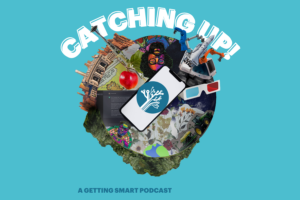Christensen and Eyring Assess the Future DNA of Education in The Innovative University
Clayton Christensen and Henry J. Eyring’s forthcoming book The Innovative University tackles the question of how to increase quality, performance and demand for higher education while continuing to cut costs to reduce tuition inflation by changing the DNA of colleges and universities.
Christensen and Eyring characterize current and traditional colleges and universities as entities that strive to continue to grow in size and quality while becoming more stringent in academic expectations and credentials. In order to develop at the market rate of demand and competition, schools’ tuition rates are required to increase beyond inflation. These pitfalls have led to an obvious shift to cheaper and more convenient online courses.
In today’s world, students and professors are experiencing a paradigm shift in educational goals and initiatives due to what Christensen has coined as “disruptive innovation.” According to Christensen’s website, the theory of disruptive innovation articulates the process in which bottom market products or services displace established competitors. Disruptive innovations in higher education include online courses, lack of funding and emerging technologies that change daily functions, outcomes and assessments in the classroom.
The authors state that students are turning to online learning for obvious reasons, which include the ability to save money on tuition and housing, and to continue working while attending school. Yet Christensen and Eyring argue that online learning today is more than just a cost saver, it improves the quality of education and learning.
According to the authors, a hybrid course that includes online communication, collaboration and projects as well as in-class time can truly meet learning initiatives, reach educational goals, improve skill development and create a learning environment adapted to each student’s needs. New technologies open the doors to anytime, anywhere and anything learning.
Students are learning less from professors and faculty who are experts in subject-matter and instead learning subject matter from technologies and experiences. The role of professors and faculty is shifting toward designers of learning experiences, mentors and coaches to learning. In the future, we can expect to see improvements in higher education that include innovation, hybrid courses, diversification of teaching and a greater dedication to student learning.
Click here to learn more about “The Innovative University.”






0 Comments
Leave a Comment
Your email address will not be published. All fields are required.